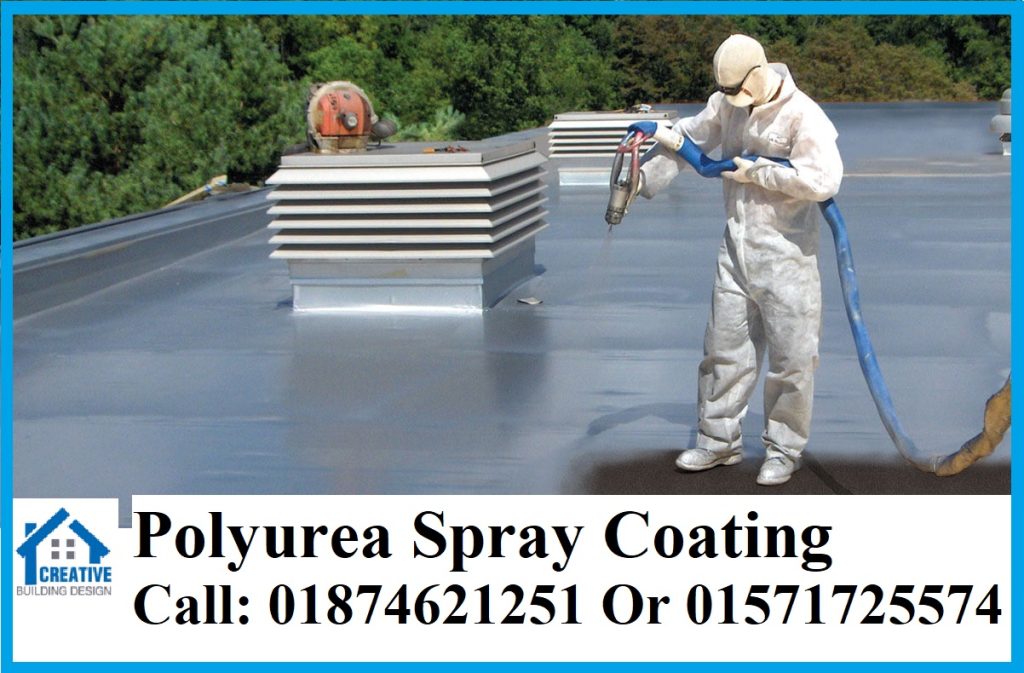
Polyurea spray is commonly used as a protective coating on surfaces that are exposed to high wear and tear, such as commercial and industrial floors, parking garages, and truck bed liners. It is also used to coat pipes and tanks to protect them from corrosion. Polyurea spray can be applied to both hot and cold surfaces, and dries very quickly, making it an ideal coating for many different applications.
Contents [hide]
- 1 Mechanical properties of Polyurea:
- 2 Polyurea Usages:
- 2.1 1. Save your investment with Polyurea:
- 2.2 2. Military Blast Force Mitigation:
- 2.3 3. Water theme park Lining:
- 2.4 4. Architectural Designing:
- 2.5 5. Bridge Coating:
- 2.6 6. Garage and Car Parking Decks:
- 2.7 7. Fuel Storage & Containment areas:
- 2.8 8. Joint Filling:
- 2.9 9. Marine Coatings:
- 2.10 10. Pipe Coatings:
- 2.11 11. Roof waterproofing Coating:
- 2.12 12. Tank Coatings:
- 2.13 13. Truck Bed Liners:
- 2.14 14. Wastewater Treatment ETP Linings:
- 3 Physical Properties:
- 4 Final Words:
Mechanical properties of Polyurea:
- Polyurea (pure) = Polyamine + Isocyanate
- Polyurethane = Polyol + Isocyanate + Catalyst
- Polyurea (hybrid) = Polyamine + Polyol+ Isocyanate
Polyurea Usages:
1. Save your investment with Polyurea:
Polyurea is an extremely durable material that is resistant to abrasion, chemicals, and extreme temperatures. This makes it an ideal choice for many different applications where a long-lasting, tough, and weather-resistant coating is needed. Polyurea can be applied to metal, concrete, wood, and fiberglass surfaces, and will protect your investment from the elements and wear and tear.
2. Military Blast Force Mitigation:
Polyurea is being used by the military to coat vehicles and buildings that are exposed to blast forces. The flexibility and strength of polyurea make it an ideal material for this application, as it can absorb the impact of a blast and prevent damage to the underlying structure.
3. Water theme park Lining:
Polyurea is often used as a liner in water theme parks, as it is completely waterproof and can withstand constant exposure to water and chemicals. The non-slip surface of polyurea is also ideal for this application, as it prevents slips and falls.
4. Architectural Designing:
Polyurea can be used in architectural applications to create unique and interesting designs. The flexibility of polyurea allows it to be formed into almost any shape, and the strong bonding properties make it ideal for attaching to other materials.
5. Bridge Coating:
Polyurea is often used as a protective coating on bridges, as it can withstand constant exposure to the elements and the weight of traffic. The flexibility of polyurea also makes it ideal for this application, as it can expand and contract with the bridge as it moves.
6. Garage and Car Parking Decks:
Polyurea is a common coating for garage and car parking decks, as it is resistant to oil and gas spills and high traffic. The non-slip surface of polyurea is also ideal for this application, as it prevents slips and falls.
7. Fuel Storage & Containment areas:
Polyurea is often used to coat fuel tanks and storage areas, as it is resistant to chemicals and extreme temperatures.
8. Joint Filling:
Polyurea is often used to fill joints and cracks, as it is flexible and can expand and contract with the movement of the joint. The strong bonding properties of polyurea also make it ideal for this application, as it will prevent the joint from opening up again.
9. Marine Coatings:
Polyurea is a common coating for boats and other marine vessels, as it is resistant to salt water and extreme temperatures.
10. Pipe Coatings:
Polyurea is often used to coat pipes, as it is resistant to corrosion and extreme temperatures.
11. Roof waterproofing Coating:
Polyurea is often used as a roof waterproofing coating, as it is completely waterproof and can withstand extreme temperatures.
12. Tank Coatings:
Polyurea is often used to coat tanks, as it is resistant to corrosion and extreme temperatures.
13. Truck Bed Liners:
Polyurea is often used as a truck bed liner, as it is resistant to abrasion and extreme temperatures. The non-slip surface of polyurea is also ideal for this application, as it prevents slips and falls.
14. Wastewater Treatment ETP Linings:
Polyurea is often used as a liner in wastewater treatment plants, as it is resistant to chemicals and extreme temperatures.
Physical Properties:
- Tensile strengths up to 6,600 PSI
- Elongation up to 800%
- Tear strength up to 400 PLI
- Abrasion resistance is up to 8 times better than rubber
- Chemical resistance to acids, bases, salt solutions, aliphatic, aromatic hydrocarbons, and chlorinated solvents.
- Temperature range from -60°F to +250°F.
Final Words:
Polyurea is an extremely versatile material that has many different uses. It is a strong, flexible, and waterproof material that can withstand elements and high wear and tear. Polyurea can be applied to many different surfaces and is an ideal choice for many different applications.
Related Post:
- Best Waterproofing & Damp Proofing Company
- Waterproofing And Dampproofing Specialist In Bangladesh
- Acrylic Roof Coating Waterproofing
- Bituminous Membrane in Bangladesh
- Cementitious waterproofing in Bangladesh
- Concrete Waterproofing Company in Bangladesh
- Foundation Waterproofing Membrane In Bangladesh
- How To Make Concrete Roof Waterproof?
- How To Waterproof Basement Concrete Floor?
- How To Waterproof Concrete Wall?
- Is Concrete Paint Waterproof?
- Polyurethane Waterproofing In Bangladesh
- Rooftop Waterproofing In Bangladesh
- Waterproofing Chemical in Bangladesh
- Best Waterproofing Applications for Your Flat Roof
- Waterproofing In Bangladesh
- Waterproofing Membrane In Bangladesh
